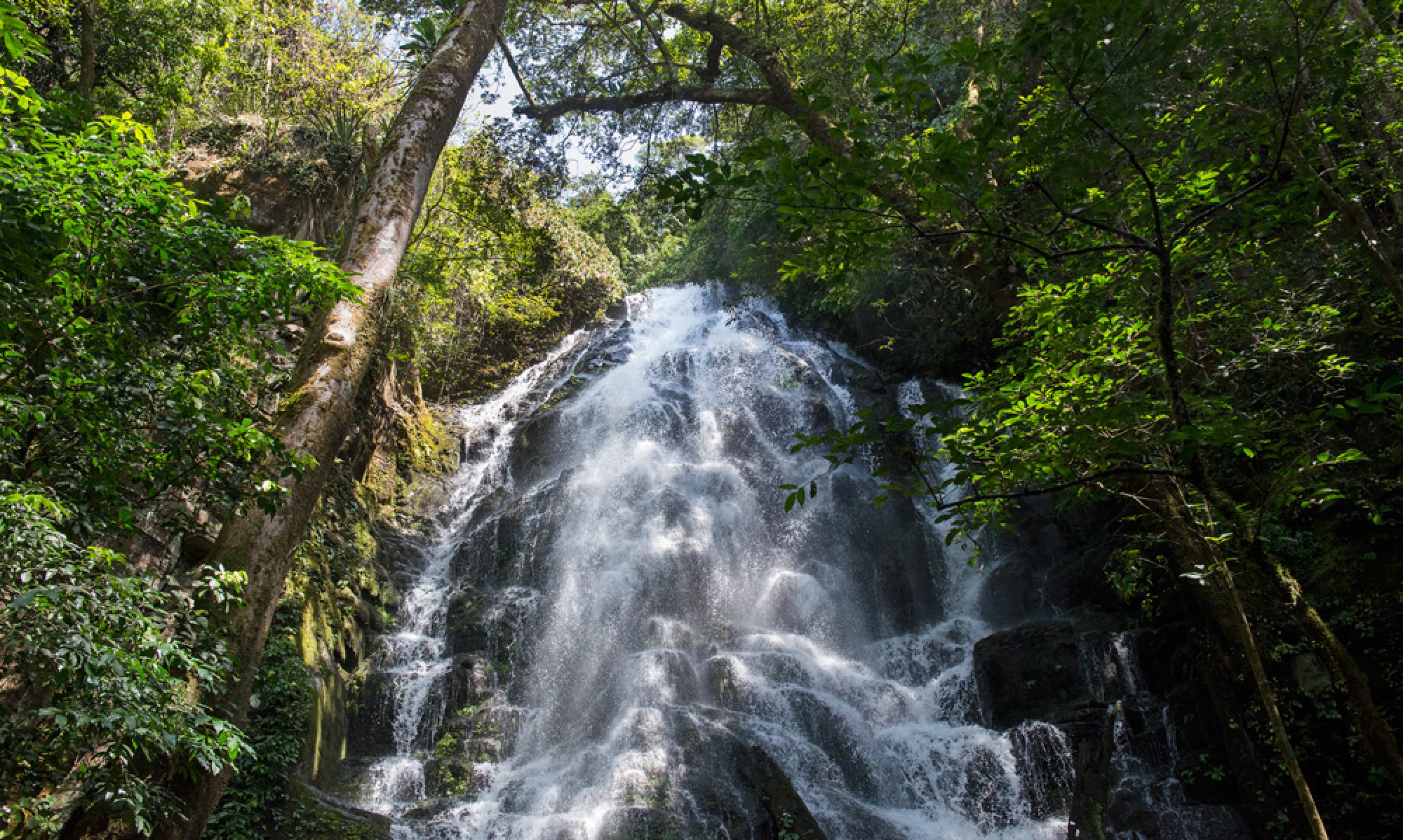By Emma Diltz
GUACIMAL, Costa Rica – Protestors blocking the construction of a pipeline to withdraw water from the Veracruz River near this central Pacific Costa Rican town confronted a government official Thursday morning, saying the project did not have proper permits.
Veronica Sheehan, leader of the Alliance for the Water Resources for Puntarenas, said if the project continues, the community is worried the river will become seriously depleted, as occurred in a similar project on the nearby Acapulco River.
“It’ll dry up the river, at least that’s what our estimation is,” Sheehan said.
Close to 50 people of various ages sat along the side of the road with tired expressions, until the arrival of officials from the government agency Servicio Nacional de Aguas Subterráneas Riego y Avenamiento, also known as SENARA. As police looked on, tensions became palpable as community members surrounded the official and voiced their concerns over the project.
About noon the day before, workers had dug trenches along the now-blocked road and installed and covered part of a pipeline. That’s when community members started to take action, according to Shirley Murillo Ulate, coordinator of the Bellbird Biological Corridor, a conservation organization. Murillo observed the protest Thursday with a group of journalism students.
To be environmentally conscious, Murillo said an environmental study would have to be conducted that could take a couple years to complete. The data collected would give accurate levels of the river and determine how much water can be removed without destroying the ecosystem.
Sheehan said the construction company doesn’t have proper permits to continue to lay the pipes. She asked the police to be present to observe the scene.
Victor Montes Barquero, an official representing SENARA, an agency in charge of irrigation projects, argued that the construction company has the proper paperwork to continue and that the project is so small it doesn’t require an environmental study.
Residents said the project doesn’t qualify as small because of the potentially large impacts it could have. The concern stems from a similar project that caused the nearby Acapulco River to run dry.
According to Sheehan, the file on the project stated that the water from the Veracruz, which flows into the Guacimal River, would be used to help cattle ranchers and crop farmers.
In addition to Guacimal, other communities will be affected by the decision. The irrigation system would run from Guacimal south to Los Angeles.
Montes said to a crowd that though he understood why they were upset, he was not in a position to change anything about the situation. He also said he had permission from the municipality to install the pipe.
When the Veracruz project was introduced a few years ago, many people in the community entered as beneficiaries because it would help about 60 families, according to Development Association for Guacimal member Dionisio González.
“But from the beginning, community members started investigating what was going to happen, and (members) discovered permits were not in place in addition to other problems,” said González.
Since then, he said residents have worked to either stop or alter the project as it’s developed into something different than the original plan.
“Originally, it was supposed to (draw) 64 liters (of water) per second, which would’ve benefited 50 to 60 families between the towns of Guacimal and Los Angeles,” González said.
He said SENARA didn’t tell any of the community members that permits were a necessary part of the process and that not having them could create problems.
The new plan calls for increasing the amount of water used per second to 164 liters. González believes these are overall beneficial projects for the community, but the stakeholders pushing the project haven’t been taking the communities into account when planning them, he said.
“Almost everyone in the community is not opposed to the project per se, as long as it’s the original 64 liters per second,” González said. “But we need good planning and oversight of the project procedures and permits for the pipeline.”
Ultimately, he thinks the community will prevail in fighting the pipeline.
“When one believes in something and one is fighting for something, you believe you’re going to win. I think the community is going to win,” he said.
About 11 a.m. Thursday Sheehan received a call from the Ministry of the Presidency saying the project would be suspended for two weeks while there is dialogue between SENARA and the Alliance.

Good reporting on an important news story. How fortunate you were there to get it.